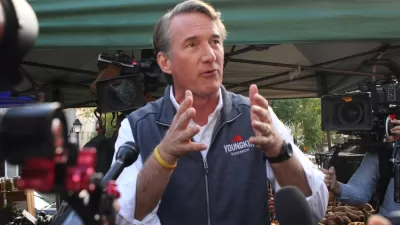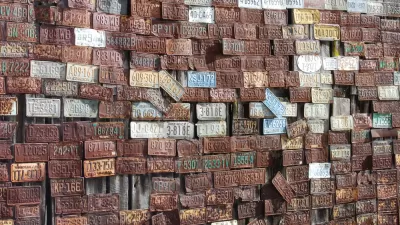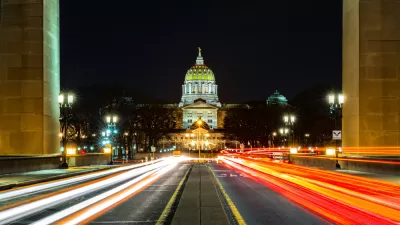Established eight years ago by a bipartisan coalition of Northeast and mid-Atlantic governors, the Regional Greenhouse Gas Initiative was the first cap-and-trade system established in the U.S. It now faces an uncertain future.
Peter Shattuck and Daniel L. Sosland pen an op-ed for The New York Times in which they explain why future of the Regional Greenhouse Gas Initiative, which over its first three years reduced annual emissions by 23 percent and raised $952 million for clean energy programs, is now in question. "The nine states in the initiative are preparing to reset the emissions cap — or the total amount of carbon dioxide that power plants can emit — and some of the proposals would allow power plants to increase the amount of carbon dioxide they dump into the atmosphere."
"Opponents of the initiative, known as R.G.G.I., argue that lower-cost has eliminated the need for the program by reducing the use of dirtier coal and . Growing investments in energy efficiency and renewable electricity have also helped to reduce emissions by cutting demand for electricity from power plants that burn fossil fuels."
"But those developments don’t argue against R.G.G.I., which determines what electricity generators may not do — namely, discharge unlimited quantities of carbon dioxide into the atmosphere. If market forces deliver emissions reductions cheaper and faster than anticipated, then states should lock in that progress with a binding cap to ensure that emissions don’t rise and that incentives for reducing pollution remain."
FULL STORY: Northeast Faces Stark Choice on Climate Pollution

Planetizen Federal Action Tracker
A weekly monitor of how Trump’s orders and actions are impacting planners and planning in America.

Congressman Proposes Bill to Rename DC Metro “Trump Train”
The Make Autorail Great Again Act would withhold federal funding to the system until the Washington Metropolitan Area Transit Authority (WMATA), rebrands as the Washington Metropolitan Authority for Greater Access (WMAGA).

The Simple Legislative Tool Transforming Vacant Downtowns
In California, Michigan and Georgia, an easy win is bringing dollars — and delight — back to city centers.

The States Losing Rural Delivery Rooms at an Alarming Pace
In some states, as few as 9% of rural hospitals still deliver babies. As a result, rising pre-term births, no adequate pre-term care and "harrowing" close calls are a growing reality.

The Small South Asian Republic Going all in on EVs
Thanks to one simple policy change less than five years ago, 65% of new cars in this Himalayan country are now electric.

DC Backpedals on Bike Lane Protection, Swaps Barriers for Paint
Citing aesthetic concerns, the city is removing the concrete barriers and flexposts that once separated Arizona Avenue cyclists from motor vehicles.
Urban Design for Planners 1: Software Tools
This six-course series explores essential urban design concepts using open source software and equips planners with the tools they need to participate fully in the urban design process.
Planning for Universal Design
Learn the tools for implementing Universal Design in planning regulations.
Smith Gee Studio
City of Charlotte
City of Camden Redevelopment Agency
City of Astoria
Transportation Research & Education Center (TREC) at Portland State University
US High Speed Rail Association
City of Camden Redevelopment Agency
Municipality of Princeton (NJ)





























